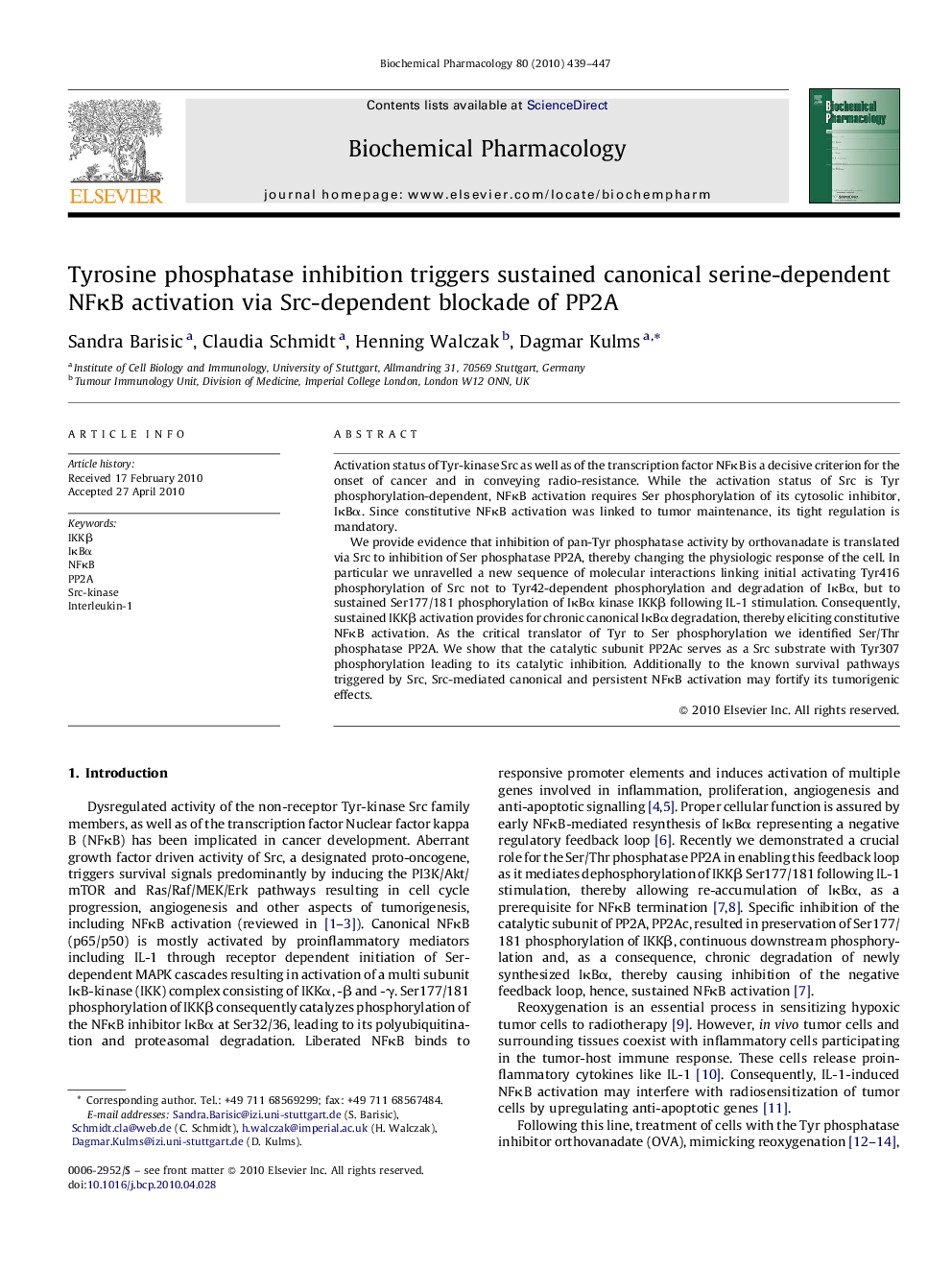| Article ID | Journal | Published Year | Pages | File Type |
|---|---|---|---|---|
| 2513389 | Biochemical Pharmacology | 2010 | 9 Pages |
Activation status of Tyr-kinase Src as well as of the transcription factor NFκB is a decisive criterion for the onset of cancer and in conveying radio-resistance. While the activation status of Src is Tyr phosphorylation-dependent, NFκB activation requires Ser phosphorylation of its cytosolic inhibitor, IκBα. Since constitutive NFκB activation was linked to tumor maintenance, its tight regulation is mandatory.We provide evidence that inhibition of pan-Tyr phosphatase activity by orthovanadate is translated via Src to inhibition of Ser phosphatase PP2A, thereby changing the physiologic response of the cell. In particular we unravelled a new sequence of molecular interactions linking initial activating Tyr416 phosphorylation of Src not to Tyr42-dependent phosphorylation and degradation of IκBα, but to sustained Ser177/181 phosphorylation of IκBα kinase IKKβ following IL-1 stimulation. Consequently, sustained IKKβ activation provides for chronic canonical IκBα degradation, thereby eliciting constitutive NFκB activation. As the critical translator of Tyr to Ser phosphorylation we identified Ser/Thr phosphatase PP2A. We show that the catalytic subunit PP2Ac serves as a Src substrate with Tyr307 phosphorylation leading to its catalytic inhibition. Additionally to the known survival pathways triggered by Src, Src-mediated canonical and persistent NFκB activation may fortify its tumorigenic effects.
Graphical abstractTyrosine phosphatase inhibition by orthovanadate (OVA) triggers sustained canonical serine-dependent NFκB activation via Src-dependent blockade of the serine/threonine phosphatase PP2A.Figure optionsDownload full-size imageDownload as PowerPoint slide
